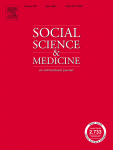
Individual and Spousal Unemployment as Predictors of Smoking and Drinking Behavior
Abstract
The effects of unemployment on health behaviors, and substance use in particular, is still unclear despite substantial existing research. This study aimed to assess the effects of individual and spousal unemployment on smoking and alcohol consumption. The study was based on eight waves of geocoded Framingham Heart Study Offspring Cohort data (US) from 1971 to 2008 that contained social network information. We fit three series of models to assess whether lagged 1) unemployment, and 2) spousal unemployment predicted odds of being a current smoker or drinks consumed per week, adjusting for a range of socioeconomic and demographic covariates. Compared with employment, unemployment was associated with nearly twice the subsequent odds of smoking, and with increased cigarette consumption among male, but not female, smokers. In contrast, unemployment predicted a one drink reduction in weekly alcohol consumption, though effects varied according to intensity of consumption, and appeared stronger among women. While spousal unemployment had no effect on substance use behaviors among men, wives responded to husbands' unemployment by reducing their alcohol consumption. We conclude that individual, and among women, spousal unemployment predicted changes in substance use behaviors, and that the direction of the change was substance-dependent. Complex interactions among employment status, sex, and intensity and type of consumption appear to be at play and should be investigated further.
Citation:
M. Arcaya, M.M. Glymour, N.A. Christakis, I. Kawachi, and S.V. Subramanian, "Individual and Spousal Unemployment as Predictors of Smoking and Drinking Behavior" Social Science and Medicine, 110: 89-95 (June, 2014) doi: 10.1016/j.socscimed.2014.03.034